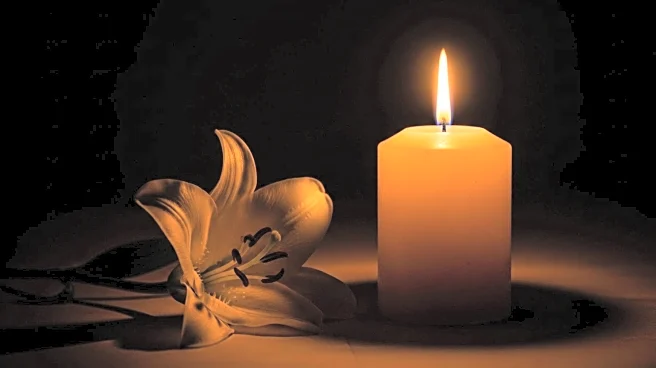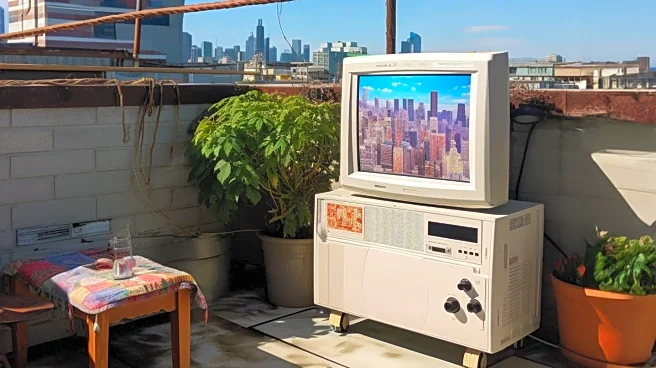What is the story about?
What's Happening?
Ukraine has instituted a daily nationwide moment of remembrance at 9 a.m., where traffic lights turn red and citizens pause for one minute to honor those killed in Russia's full-scale invasion. This ritual, initiated by a presidential decree from Volodymyr Zelenskyy in 2022, has become a shared national practice. Despite intensified Russian missile and drone attacks, Ukrainians continue to gather each morning to remember the fallen. The ritual fulfills a deep social and personal need, as described by Ihor Reva, deputy head of Kyiv's military administration. City officials have synchronized Kyiv's traffic lights to ensure the capital joins the nationwide pause.
Why It's Important?
The daily remembrance ritual underscores the resilience and solidarity of the Ukrainian people amidst ongoing conflict. It serves as a poignant reminder of the human cost of war and the collective grief experienced by the nation. This practice not only honors the fallen but also strengthens national unity and morale. As Russian attacks intensify, the ritual provides a moment of reflection and connection for citizens, reinforcing their commitment to defending their homeland. The initiative highlights the importance of memory and the preservation of the values and lives of those lost in the conflict.
What's Next?
City officials in Kyiv have recently synchronized traffic lights to turn red at 9 a.m., ensuring the capital joins the nationwide pause. This move indicates a continued commitment to the ritual and suggests potential expansion or formalization of the practice across other regions. As the conflict persists, the daily remembrance may evolve further, potentially influencing public policy or international support for Ukraine. The ritual's impact on national morale and unity could play a significant role in Ukraine's ongoing resistance against Russian aggression.
Beyond the Headlines
The daily remembrance ritual in Ukraine highlights the cultural and ethical dimensions of war, emphasizing the importance of memory and collective mourning. It reflects the societal need to honor and preserve the legacy of those who have sacrificed their lives. This practice may inspire similar initiatives in other conflict-affected regions, promoting global awareness and empathy for the human cost of war. The ritual also raises questions about the role of public memory in shaping national identity and resilience during times of crisis.
















